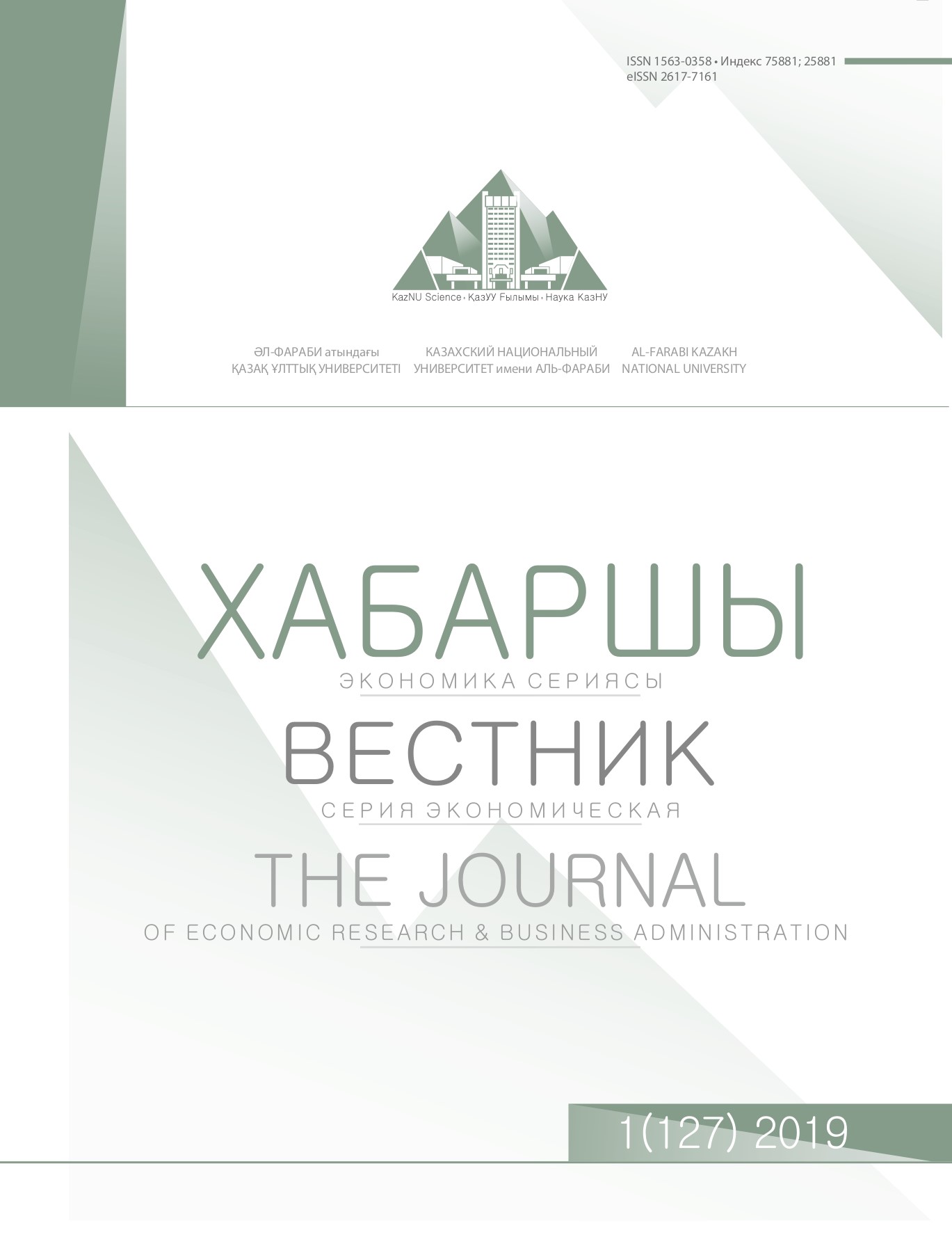HARMONIZATION OF TAX SYSTEMS OF THE MEMBER STATES OF THE EURASIAN ECONOMIC UNION
DOI:
https://doi.org/10.26577/be.2019.v127.i1.29Abstract
The relevance of this article is reflected in the need for a comprehensive study and comparative analysis of the tax systems of the countries of the Eurasian economic Union in the context of globalization of the world economy. The main purpose of the article is to conduct a comparative analysis of the elements of the tax systems of the EAEU countries and identify the existing problems that prevent harmonization. The object of the article is the tax systems of the countries of the Eurasian economic Union.
Analyzing the data from the article on VAT, significant problems were identified. Taking into account the special importance of VAT in foreign trade, the necessary measures are proposed to solve the problems of unification of the tax legislation of the member States of the Eurasian economic Union.
This article contains introductory information for future research on the harmonization of tax systems. The Eurasian economic Union is a fundamentally new object of socio-economic research, so the study of the peculiarities of its formation and functioning, as well as its place in the global process of globalization is of great scientific interest.
Tax relations are present in all sectors of the world economy, therefore in the conditions of globalization of the world economy, it is important to consider the tax implications accept integration solutions. It is well known that the main components of the tax system are indirect taxes, in particular VAT. The study of the state of VAT collection and the development of new approaches to improve, in our opinion, attracts a certain scientific and practical interest in the integration of the tax systems of the participating countries.













